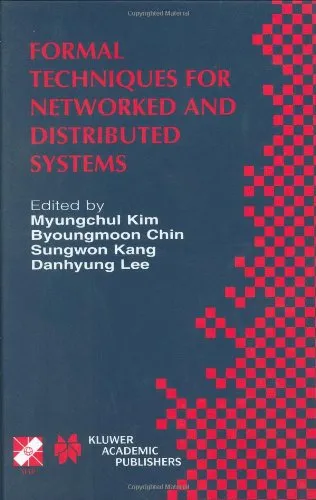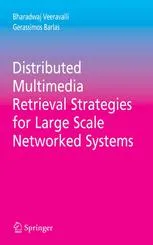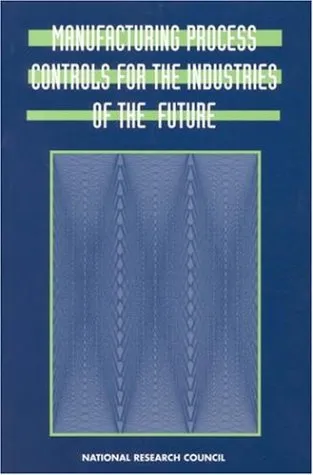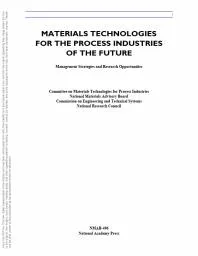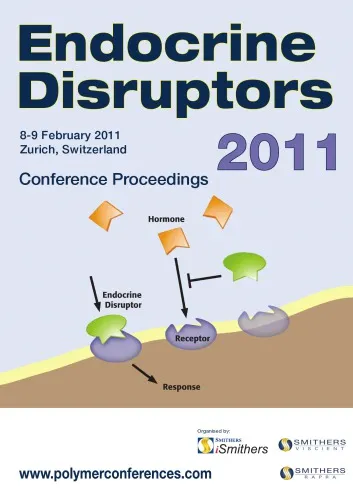Formal techniques for networked and distributed systems: FORTE 2001: IFIP TC6 WG6.1, 21st International Conference on Formal Techniques for Networked and Distributed Systems, August 28-31, 20Author: Myungchul Kim
4.5
بر اساس نظر کاربران

شما میتونید سوالاتتون در باره کتاب رو از هوش مصنوعیش بعد از ورود بپرسید
هر دانلود یا پرسش از هوش مصنوعی 2 امتیاز لازم دارد، برای بدست آوردن امتیاز رایگان، به صفحه ی راهنمای امتیازات سر بزنید و یک سری کار ارزشمند انجام بدینکتاب های مرتبط:
مقدمهای بر کتاب 'Formal techniques for networked and distributed systems: FORTE 2001'
کتاب 'Formal techniques for networked and distributed systems: FORTE 2001' مجموعهای از مقالات علمی و پژوهشی است که در بیستویکمین کنفرانس بینالمللی 'FORTE' ارائه شدهاند. این کنفرانس که تحت نظارت IFIP TC6 WG6.1 برگزار شده است، به بررسی تکنیکهای رسمی برای سیستمهای شبکهای و توزیعشده میپردازد. کتاب حاضر تلاش میکند تا با ارائه مقالاتی ارزشمند، به گسترش دانش و شبکهسازی بین محققان و متخصصان حوزه فناوری اطلاعات کمک کند.
خلاصهای جامع از کتاب
این کتاب شامل بخشهای متعددی است که هر کدام به بررسی جنبههای مختلف تکنیکهای رسمی در سیستمهای شبکهای و توزیعشده میپردازند. از مباحث اصلی که در این کتاب پوشش داده میشود میتوان به تئوری محاسبات توزیعشده، الگوریتمهای همگامسازی و پروتکلهای ارتباطی اشاره کرد. هر بخش با تمرکز بر یک موضوع مهم و با استفاده از روشهای علمی و رسمی تلاش میکند تا به چالشهای مرتبط با توسعه و پیادهسازی سیستمهای توزیعشده پاسخ دهد. از دیگر مباحث مهم میتوان به بررسی مدلهای مختلف برای تضمین صحت و امنیت در سیستمهای توزیعشده اشاره کرد که در این کتاب به تفصیل مورد بحث قرار گرفته است.
نکات کلیدی
- تشریح دقیق تکنیکهای رسمی و کاربرد آنها در سیستمهای توزیعشده
- معرفی الگوریتمهای پیشرفته جهت بهبود عملکرد سیستمهای شبکهای
- بررسی چالشهای امنیتی و روشهای تضمین آنها در سیستمهای توزیعشده
- ارائه مدلهای رسمی برای تحلیل و طراحی سیستمهای پیچیده
جملات معروف از کتاب
این کتاب بر اهمیت استفاده از Formal methods در ساختار سیستمهای توزیعشده تأکید میکند و نشان میدهد که چگونه میتوان با به کارگیری این روشها، پیچیدگیهای سیستمهای مدرن را کنترل کرد.
نویسندگان بر این باورند که درک عمقی از اصول بنیادین محاسبات توزیعشده کلید موفقیت در طراحی سیستمهایی است که بتوانند به طور کارآمد و مطمئن عمل کنند.
چرا این کتاب مهم است؟
کتاب 'Formal techniques for networked and distributed systems: FORTE 2001' به دلیل ارائه دیدگاههای نوین و تکنیکهای پیشرفته در زمینه سیستمهای توزیعشده و شبکهای، نقش مهمی در توسعه و پیشرفت این حوزه دارد. مقالات جمعآوری شده در این کتاب نه تنها برای پژوهشگران و دانشجویان این حوزه مفید هستند، بلکه به مهندسان و توسعهدهندگان نرمافزار نیز دیدگاههای علمی و عملی مالزوم برای بهبود سیستمهای موجود ارائه میدهند. مهمتر از همه، این کتاب تأکید ویژهای بر استفاده از تکنیکهای Formal برای حل مشکلات پیچیده دنیای واقعی دارد، که این خود یک گام مهم در راستای پیشرفت فناوری اطلاعات محسوب میشود.
The book "Formal Techniques for Networked and Distributed Systems: FORTE 2001, IFIP TC6 WG6.1, 21st International Conference on Formal Techniques for Networked and Distributed Systems" showcases a collection of leading research papers presented at a prestigious international conference. It serves as a pivotal contribution to the field of formal methods, particularly applied to networked and distributed systems. Such systems are integral to modern computing infrastructures, spanning a broad spectrum from local networks to vast distributed ecosystems.
Summary of the Book
The book is a compendium of high-caliber contributions meticulously selected from those presented at the FORTE 2001 conference. Each contribution delves deep into various aspects of formal techniques, providing innovative solutions and methodologies tailored for networked and distributed systems. The papers collectively cover a myriad of topics, including protocol verification, service frameworks, security models, and performance evaluation. Through rigorous analysis and empirical data, the text presents formal techniques as robust tools that address challenges inherent in these complex systems. Furthermore, the compendium underscores the significance of formal methods in enhancing reliability, efficiency, and security, thereby setting a benchmark for future research in the domain.
Key Takeaways
Readers of this book can expect to attain several critical insights:
- Formal techniques are essential for the verification and validation of distributed systems, ensuring their correctness and reliability.
- Methodologies discussed in these papers provide a systematic approach to dealing with the complexities and dynamic nature of networked systems.
- The security frameworks outlined in the book highlight the role of formal methods in safeguarding data and communication protocols.
- Performance optimization through formal techniques can result in more efficient resource usage and better overall system performance.
Famous Quotes from the Book
The book contains many noteworthy quotes from esteemed researchers, including:
"Formal methods are not just theoretical constructs; they offer practical solutions to the evolving complexities of modern distributed systems."
"By integrating formal techniques into the design lifecycle, we can assure a level of system reliability and security unprecedented in the field."
Why This Book Matters
This book is pivotal for professionals, researchers, and students invested in the advancement of formal methods in networked and distributed systems. The insights and methodologies encapsulated within these pages equip readers with the tools necessary to tackle the ongoing challenges and innovations within the industry. By establishing a dialogue between theoretical and practical facets, the book reinforces the relevance of formal techniques in real-world applications. Moreover, it plays a crucial role in the continuing education of those dedicated to the advancements of computational systems, in both academic and applied research environments.
The contents of this publication remain relevant despite the passing of years, given the perpetual transformation of technology landscapes. As distributed systems become even more intricate and widespread — encompassing areas such as the Internet of Things (IoT) and cloud computing — the need for formal techniques becomes all the more pressing. For anyone engaged in the fields of computer science and engineering, particularly those focusing on system architecture and network security, this book is an invaluable resource. It not only provides a window into the research excellence of the early 2000s but also creates a foundation upon which future innovations can be built.
دانلود رایگان مستقیم
شما میتونید سوالاتتون در باره کتاب رو از هوش مصنوعیش بعد از ورود بپرسید
دسترسی به کتابها از طریق پلتفرمهای قانونی و کتابخانههای عمومی نه تنها از حقوق نویسندگان و ناشران حمایت میکند، بلکه به پایداری فرهنگ کتابخوانی نیز کمک میرساند. پیش از دانلود، لحظهای به بررسی این گزینهها فکر کنید.
این کتاب رو در پلتفرم های دیگه ببینید
WorldCat به شما کمک میکنه تا کتاب ها رو در کتابخانه های سراسر دنیا پیدا کنید
امتیازها، نظرات تخصصی و صحبت ها درباره کتاب را در Goodreads ببینید
کتابهای کمیاب یا دست دوم را در AbeBooks پیدا کنید و بخرید
1264
بازدید4.5
امتیاز0
نظر98%
رضایتنظرات:
4.5
بر اساس 0 نظر کاربران
Questions & Answers
Ask questions about this book or help others by answering
No questions yet. Be the first to ask!
